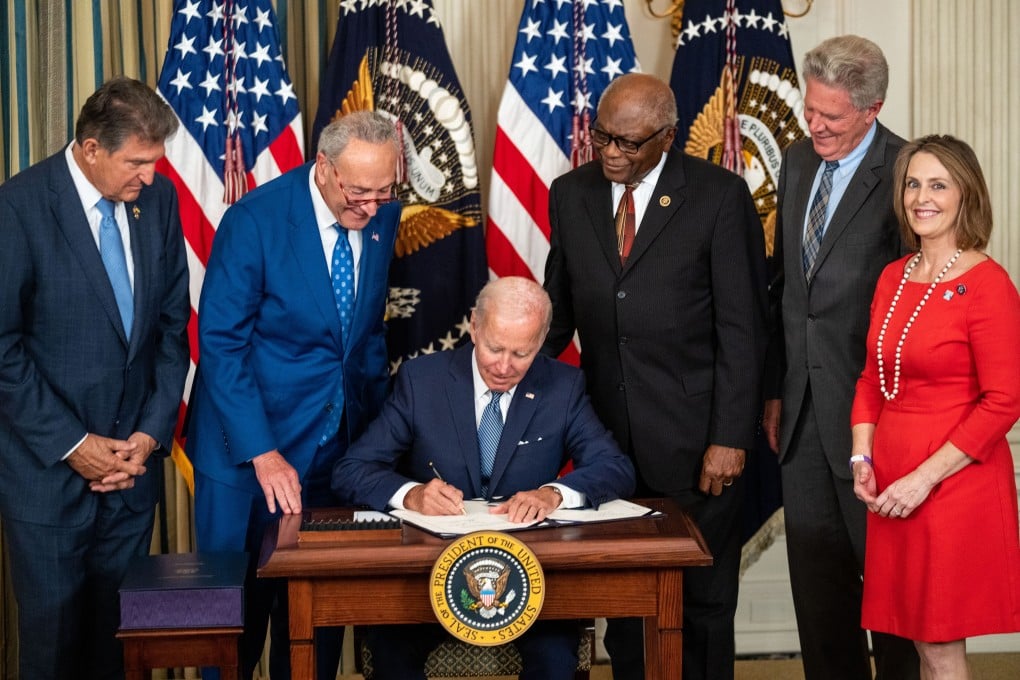Advertisement
The View | US Inflation Reduction Act is a flawed but vital step in the climate change fight
- The bill is a signal that even one of the world’s largest users of fossil fuels is willing to change tack to deal with the deadliest crisis in our history
- As the US and the likes of China and India throw their economic weight into the clean-energy revolution, their participation could spark a chain reaction
Reading Time:3 minutes
Why you can trust SCMP
14

As soon as Typhoon Mulan departed, Hong Kong returned to the deadening heat that was commonplace for most of July. It is hardly an anomaly as, nowadays, extreme weather events are driving narratives about climate change across the world.
That is why the US Inflation Reduction Act is significant. Despite all the concern about climate change, the US was all talk and no action for the longest time. Every climate proposal over the past 30 years was found lacking, and any wholesale proposed change was met with partisan defiance. Now, the act will give crucial gravitas to fight the crisis.
It will create a pathway to kick-start the clean energy transformation. Among other things, it will extend US$369 billion in subsidies and tax credits for renewable energy such as solar, wind and hydropower, as well as other eligible projects. This will help reduce overall carbon emissions and lower energy prices to build a more sustainable sector.
The act is not perfect – at best, it is a compromised version of a long-term quest for change. For example, it lacks carbon pricing or a limit on greenhouse gas emissions; it is still a long way from fulfilling US President Joe Biden’s pledge to halve carbon emissions below 2005 levels by 2030.
The US will not be able to eliminate its dependence on fossil fuels – a significant contributor to global emissions – without more radical changes. However, the act should translate into more sustainable long-term planning.
Outside the US, no one should pin their hopes for a clean energy future on one regional piece of legislation. Achieving zero carbon emissions requires massive changes to the way society functions.
Advertisement
